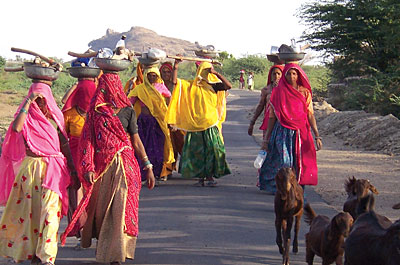 |
Travelling through Delhi, Mumbai, Bangalore, Shimla and Goa over the past three weeks gave me a glimpse into the astonishing changes taking place across urban India. Wealth and mobility are transforming the country in ways unimaginable until a few years ago.
The 'India Shining' narrative, based largely on high growth figures and the corporate boom, was more than half a decade old when the BJP picked it up as a campaign slogan in 2004. Congress promoted a more rooted campaign revolving around aam aadmi, the common man. Voters went with the latter, indicating that GDP figures did not really touch them. What mattered more was the simple promise of jobs, controlled prices, dignity, communal harmony, and access to opportunities.
This message was reinforced in the 2009 elections. Congress did not win because of the nuclear deal with the US, or because the economy was rescued from the global meltdown. Analysts believe it was the implementation of the National Rural Employment Guarantee Act that won Congress the elections.
In states across India, voters are sending out similar signals. They are rejecting politics and an economy based solely on industrial growth, which often involves displacing the poorest Indian citizens from their land. Mamata Banerjee's success in challenging the Left in West Bengal is due to her appropriation of the latter's 'pro-poor' stance to the extent of being 'anti-industry'. This resonates with the poor, and unreported by the national media, scores of protests by slum-dwellers against the systematic demolition of their homes have taken place across urban centres. The Naxalite challenge in central and eastern India may be rooted in a complex set of factors, but the tendency of 'democratic' parties to readily become agents for extractive mining industries and the lack of justice are central causes.
India faces multiple challenges, from growing inequality to political discontent and armed rebellions. But we should not forget that the Indian state has never been as equipped to deal with them as it is today. This strength is based on the economic trajectory of the past two decades, which the state is now reaping the dividends of.
The relentless infrastructural expansion of Delhi is striking. The metro now extends to almost the entire city. Airports have been modernised and passenger traffic has increased exponentially. More than IRs 200 billion is being invested in the Commonwealth Games, all in the name of 'national pride'. The national highway project and the inter-related state highway projects promise to connect the country in an unprecedented way.
In Mumbai and Bangalore, young people who graduated five years ago have 'packages' of between IRs 1.5 to 5 million a year. Many are from lower middle class families. Their families, localities, schools and colleges now believe it is possible to improve their living standards beyond what previous generations imagined. Thousands of Indian tourists in Goa and Shimla are testament to the steady increase in disposable incomes. There is renewed cultural confidence, visible in the proliferation in the arts, literature and both Hindi and regional films.
The sense that India's time has arrived is unmistakable in power corridors. The bureaucracy is both younger and more arrogant, and has little patience for any real or perceived obstacle in India's quest for a position at high table. If that means being ruthless, flouting laws, trampling on the freedom of citizens, and constricting democratic freedoms, so be it.
Nepali politicians visit Delhi often, but they spend all their time with operatives and begging for appointments with politicians. It would be far more useful for them to get out and understand the scale and significance of the changes taking place in India; the multiple ways in which the state is dealing with its challenges; and the extent to which politicians and bureaucrats are willing to work in the 'national interest'. Unless they do so, Nepali actors will neither understand India's recent aggressive approach in Nepal nor be able to break out of the old paradigms of thinking about Indo-Nepal ties.
READ ALSO:
Been there, done that, PUBLISHER'S NOTE
The lure of the national, CK LAL
The failed people, INDU NEPAL
Who's bad?, ASHUTOSH TIWARI



